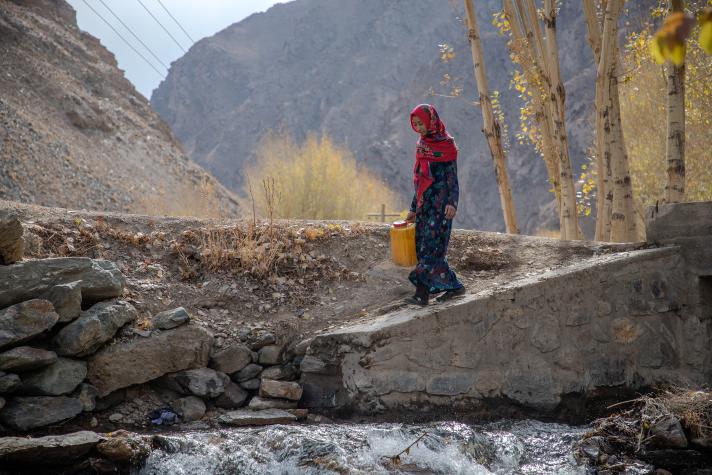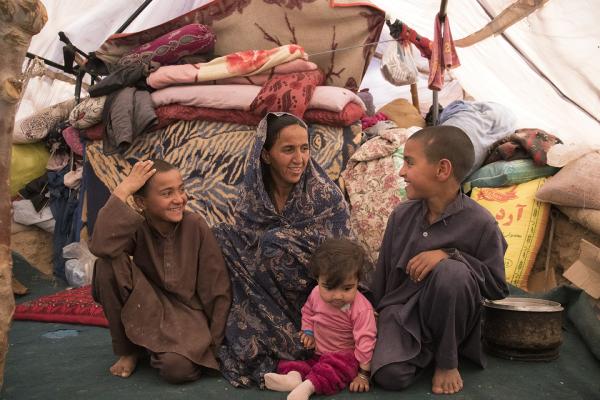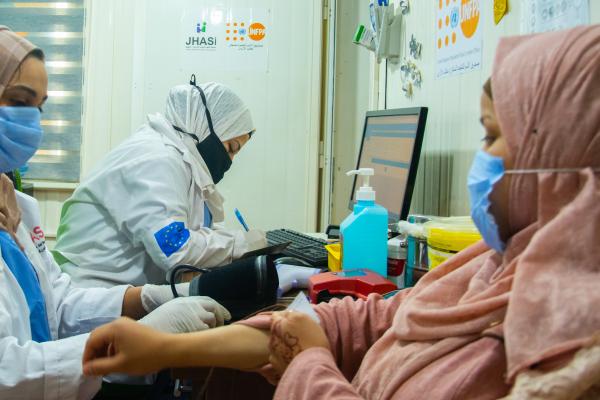An estimated 23.7 million civilians in Afghanistan require humanitarian support. The International Rescue Committee partners with the European Union to help people survive, recover, and rebuild their lives.
Rozama is 27 years old and lives with her husband, 3 children and in-laws in the Bamiyan province of Afghanistan. Her family lives from the income her husband, Muhammad Younis, makes from potato and wheat farming. The effects of climate change on the agricultural sector make it harder and harder to make ends meet. It is increasingly difficult for the family to afford even basic needs such as clean water, warm clothes, heating, or access to healthcare.
Afghanistan is currently experiencing a climate-emergency. After experiencing the most devastating drought for the last 30 years over 2021 and 2022, Afghanistan, a country that is extremely vulnerable to climate change, is now in its third consecutive year of drought-like conditions. This makes it very difficult for people to obtain clean water for drinking and have enough water to irrigate their fields.
“We don’t have access to clean water and that is why we use the river water,” Rozama tells us, “When we drink this unclean water, it causes the children to get sick. Once I got sick because I drank this unclean water.”
The winters in Bamiyan province brings freezing temperatures. Most households are unable to afford coal, heaters, or even warm winter attire, which puts children at a high risk of getting sick. The small amount of wood Rozama’s husband collects for heating often gets wet in winter, and they don’t have money to buy enough coal to heat the whole house.
Rozama worries for the health of her young children, unprotected against the bitter cold: “We borrow money and buy warm clothes for our children because we don’t want them to get sick due to the cold.”
The closest hospital to the village is in Bamiyan centre, but Rozama’s family cannot afford to travel there.
The IRC mobile health clinic, run with funding from the EU, has been crucial in bringing immediate healthcare to Rozama and other families in the area. It allows them to access quality medical care and medicine without having to travel far.
“It is good that doctors come every month. They distribute medicine to us. Then we don’t need to go to Bamiyan centre,” Rozama says.
The IRC’s EU-funded mobile health teams bring primary healthcare to remote villages like Sabzaab Bala, where Rozama and her family live. The mobile clinic teams are comprised of general doctors, nutritionists, pharmacists, midwives, and mental health professionals who provide general checkups, reproductive healthcare, screenings and treatment for malnutrition in adults and children, and essential medication. The IRC has set up 22 such mobile health and nutrition teams in Afghanistan, and equipped 18 static health facilities with staff, essential medicines, and medical supplies.







